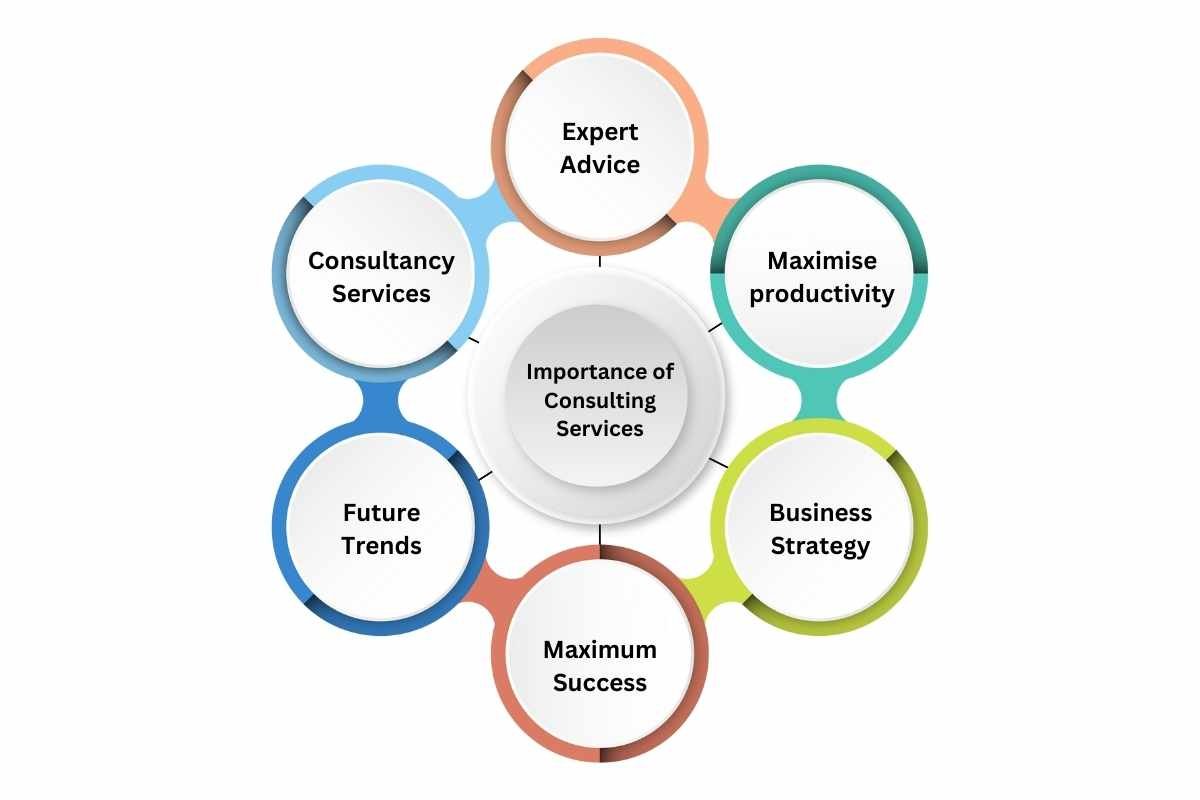In today’s dynamic and rapidly evolving business landscape, companies are constantly faced with new challenges and opportunities. Whether it’s navigating digital transformation, managing organizational change, or responding to global economic shifts, businesses must remain agile and informed to stay competitive. This is where the importance of consulting comes into play. Consulting services offer invaluable expertise, helping organizations optimize their operations, identify growth opportunities, and make informed decisions. This blog explores the importance of consulting, its key benefits, and why businesses of all sizes should consider engaging with consulting professionals.
Who is a Consultant and his role in business?
A consultant is a professional who provides advice and solutions to businesses or to individuals in a specific area of expertise. Their role is to identify problems and offer solutions to help businesses improve their performance, efficiency, or decision-making. Consultants typically work on a contractual basis providing advisory opinions on strategy, operations, finance, technology, and/or human resources. They will form an independent, objective position for clients seeking outside support in complex issues or transitions and are retained based on their knowledge, experience, and ability to generate outcomes within a given timeframe.
Importance of Consulting Services for New Businesses

Here are some reasons why taking services from a professional business consultant is very important:
- Expert Advice: A consultant will be able to give you expert advice on the whole gamut of your business, be it marketing and operations or finance.
- Maximise Productivity: Consulting firms would know your processes and guide you on how to make optimum utilization of the processes so you can maximize productivity along with cost-cutting.
- Business Strategy: Consultants may help you form and implement an effective business strategy in line with your objective, objectives, and outcome.
- Maximum Success: They can make you utilize your resources in the best way possible so that you can achieve maximum success with minimal effort.
- Future Trends: These experts will enable you to predict future trends and prepare for what might happen or what is bound to happen in order for your business to be ever-ready to welcome any change or challenge.
- Consultancy Services: You may acquire more chances of winning by using this consultancy service because they have instruments and experience that will help you achieve your goals.
Types of Consultancy Services
Consulting services can be broadly categorized into several key areas, each designed to address specific business needs. Understanding these areas can help businesses decide when and where to seek consulting support.

- Management Consulting: Management consulting firms help businesses improve performance and efficiency by analyzing operations and implementing best practices. They utilize research and data for tasks like project management and business model analysis. Their primary goal is to enhance organizational success through strategic insights.
- Strategy Consulting: Strategy Consultants work with senior management to develop long-term plans and strategies. This type of consulting focuses on high-level decisions that affect the overall direction of the company, such as entering new markets, mergers and acquisitions, or business model innovation.
- Financial Consulting: Financial consultants help businesses manage their finances more effectively. They may offer advice on investment strategies, risk management, tax optimization, and financial planning.
- Information Technology Consulting: As businesses increasingly rely on technology, technology consultants play a critical role in advising on IT infrastructure, software implementation, cyber security, and digital transformation strategies.
- Human Resources Consulting: HR consultants specialize in optimizing talent management and organizational structure. They provide expertise on recruitment strategies, employee engagement, compensation, and training programs.
Choosing the Right Consultant for Your Business
Finding the right consulting firm for your business is essential for success. Look for a consultant who not only has the relevant expertise but also aligns with your company culture. Research different firms to assess their experience and approach. Hiring a consultant is a significant investment, and thorough research is vital to ensure you choose a firm that provides high-quality advisory services. While considering the importance of consulting, businesses should consider the following factors:
- Experience and Expertise: Look for consultants with a proven track record in the area you need help with. Their industry-specific knowledge can be invaluable.

- Reputation: Client testimonials and case studies can provide insight into a consultant’s ability to deliver results.
- Approach and Fit: It’s important to choose a consultant whose approach aligns with your business culture and goals.
- Cost and Availability: Ensure that the consultant’s fees and availability match your budget and timeline.
Conclusion: The Lasting Impact of Consulting
The importance of consulting cannot be overstated in today’s complex business environment. Whether a company is looking to improve its operations, expand into new markets, or navigate organizational change, consultants offer the expertise, objectivity, and strategic insight needed to succeed. By engaging with the right consulting professionals, businesses can gain a competitive edge, drive growth, and ensure long-term success.
Investing in consulting is an investment in your business’s future. It allows organizations to stay ahead of industry trends, adapt to changes, and make informed decisions that propel them forward. Whether you’re a small business or a large enterprise, consulting remains a critical factor in achieving sustainable growth and resilience.










